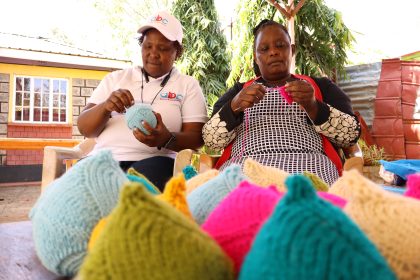Oesophageal cancer may start quietly, with subtle signs that are easy to ignore. But with greater awareness, early detection becomes possible, and that can make all the difference in improving outcomes.
Oesophageal cancer remains one of Kenya’s most serious yet under-recognised health challenges. According to a 2017 study published in the Annals of Oncology, the country lies within what researchers call Africa’s “oesophageal cancer corridor” — a region with some of the highest reported cases worldwide. Alarmingly, Kenya also records a significant number of cases in people under 30.
Despite these statistics, public awareness and research around this disease remain limited.
What is oesophageal cancer?
Oesophageal cancer occurs when cells in the oesophagus — the muscular tube that carries food to the stomach — begin to grow abnormally and uncontrollably. These cancer cells can form tumours that interfere with swallowing and may spread to other parts of the body.
Normally, the DNA in our cells instructs them when to grow, divide, or die. In cancer, these instructions get corrupted. The result? Cells multiply rapidly and don’t die when they should. Over time, this leads to the formation of tumours and damage to healthy tissue.
Types of oesophageal cancer
There are two main types:
- Squamous Cell Carcinoma – typically linked to smoking and alcohol use.
- Adenocarcinoma – often associated with acid reflux and obesity.
Who is at risk?
Several factors can increase the risk of developing oesophageal cancer, including:
- Smoking and alcohol consumption
- Regular consumption of very hot foods or drinks
- Gastroesophageal Reflux Disease (GERD)
- Obesity
- Family history or genetic predisposition
Recognising the symptoms
Early symptoms can be subtle. Watch out for:
- Trouble swallowing
- Pain while swallowing
- Chest pain or discomfort
- Persistent coughing or hoarseness
- Unexplained weight loss
- Indigestion or heartburn that worsens over time
Why early detection matters
Kenya currently lacks a national screening programme for oesophageal cancer. Because of this, many patients are diagnosed only when the disease is advanced and symptoms are severe. By then, treatment becomes more complicated, and the chances of recovery decrease.
Treatment options
Depending on how far the cancer has progressed, treatment may involve:
- Surgery to remove part or all of the oesophagus
- Chemotherapy
- Radiation therapy
- Targeted therapy
- Immunotherapy
- In some cases, laser or electro-coagulation therapy
What can be done?
While there’s no guaranteed way to prevent oesophageal cancer, you can reduce your risk by:
- Avoiding tobacco and limiting alcohol use
- Maintaining a healthy weight
- Managing acid reflux or GERD
- Being mindful of food and drink temperatures
Looking ahead
Much remains unknown about why oesophageal cancer is so prevalent in Kenya, especially among younger individuals. Researchers continue to explore environmental, genetic, and dietary factors. What’s clear, however, is the urgent need for more awareness, early screening, and public health support to tackle this deadly disease.





















